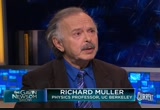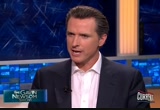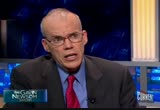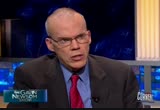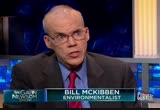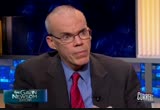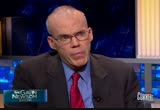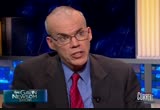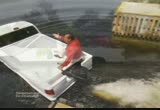tv The Gavin Newsom Show Current December 14, 2012 10:00pm-11:00pm PST
10:00 pm
10:01 pm
ourselves from the consequences of global warning. if you're not convinced--if you're not convinced, you will be, i hope, after watching this show. my first guest is scholar richard muller. he joins us to tell us once and for all what exactly made him change his mind. and then bill mckibben. the day after the election bill hit the road with the "dodo the math tour. and finally filmmaker ken burns he's back on the show with his perspective on that other manmade disaster, the 1930s dust bowl. but first up richard muller joined by his daughter elizabeth. together they founded best, the berkeley earth surface. they have shocking facts about
10:02 pm
the impact global warming is, and how we can mitigate the carbon output of other countries most notably china. it's great to have you on the show. you made the case, but at the end of the day the real challenge is staring us right in the face, china india and the developing nations. unless we dramatically encourage a shift in the way they consume energy, our individual efforts aren't necessarily go to aggregate into anything significant, is that fair? >> absolutely. china has already put out twice as many gasses as the u.s. in 2012. while our emissions are going down, china is growing at 10% of the year. if all of this was to cease to exist, china would make up for
10:03 pm
that in three and a half years. >> it doesn't matter what we do here. if we set an example by spending money and china can't afford to follow that example and we can't afford to subsidize that example, then that example is not much good. we need something that can be done in china. then we would both believe any solution has to be focused on the developing world because that is where--i'm not putting blame on anybody. they have every right in my mind to develop. i would love to see them develop. i would like to see them become wealthy, but we must recognize that along the track they're going in which they're burning primarily coal for their energy, this is going to be the source of the carbon dioxide that will lead to what i consider to be excessive global warming in the next few years. >> so coal is the core of the problem from your perspective.
10:04 pm
we're going through a giga watt of coal burning in china alone. we need to make this shift in ways of saving and reducing energy profitable. is that the example that need to be e ported? >> i mean, we can do things. the fact that it's coming from the developing world does not mean that there is nothing we can do. we can set an example that they can follow. it needs to be cheaper than coal. there are solutions that we've come up with that can have a huge impact. first it's energy efficiency. it's profitable. you can get returns of 20% a year and its tax free. it's wonderful. it's something that we all should be doing. the other one is switching the developing world china in particular away from coal to
10:05 pm
clean natural gas. we use the term clean fracking which doesn't mean it has been clean in the past but it can be clean. that's a solvable problems in the near term in the way that cheap solar optimistic by cheap shower in the long term and getting china to reduce it's emissions in the immediate term, i think clean natural gas is a practical solution. >> it is important and should be developed. i think the nuclear waste storage problem is not technically difficult. people are afraid of nuclear and we have to overcome that fear. we need to have our leaders our president, the tops of our government, the people that people trust need to be the ones who will come out and explain why the the nuclear waste storage problem is not so dangerous. i think we both believe in the long run the renewable technologies solar and wind in particular are going to win but
10:06 pm
right now they're so far behind that it will take 20 or 30 years. in china they installed two giga watts peak in solar. that's only one quarter of average power. at the same time they installed 50 giga watts, 200 times as much, in coal. we need to get them off the new installation of coal have them switch to natural gas and do this cleanly. it has not always been done cleanly, so environmental groups are opposing it. we need to get the environmental groups to define what is meant by clean enough. then come up with methods so this can be done in china in a way that verifies they're really doing it. share our technology with them in order to expedite this shift from coal to natural gas. >> one of our greatest achievements is not only
10:07 pm
announcing scientific results but giving the data for everyone to access it. we strongly felt that everybody should be able to do their own analysis. get their hand on the raw data. do the programs and the analysis themselves. that's really one of our strongest and best achievements, was making this easily accessible on the web. >> is it fair to say that you're both climate change and global warming deniers. >> i call deniers people who pay no attention to science just as alarmists pay no attention to science. there are skeptics. every scientist scientist by duty needs to be skeptical. i would say we were properly skeptical, as all scientists
10:08 pm
should be, until i could defend the science. until i could say we did this and we did this, until i could do that it was my duty as a scientist to look at the data and try to get answers. >> we pointed out there were gaps in the science. that's why people categorized us not so much as die deniers but skeptics. there were gaps in the science and we weren't afraid to say that out loud. >> we didn't know if the temperatures we were going to have-- >> 2.7 degrees fahrenheit increase over the last-- >> what we measured was temperature on the land only, which is where we live after all. that's a little higher rise than in the oceans. yes, that's about the number, 1.5 degrees celsius 2.7
10:09 pm
fahrenheit. >> how concerned are you about your findings? was it shocking? you didn't know what you were going to anticipate, but the fact that it was so similar--what was the first response in your mind when you ultimately crunched these numbers and made this determination. >> my response was amazement and delight. amazement that our results over the period where we overlapped were so similar to the previous groups. when scientists go to work, you can't write up in your paper all the details that you attend to. you write about 10% of the work you do. because this issue was so important we felt we couldn't trust the previous scientists with these gaps. now we believe they were worried about these gaps too and independently from us decided they wouldn't affect the answers. the science is in pretty good shape. the science on the warming. we're about as warm now as we
10:10 pm
were a thousand years ago. it's not a dangerous level yet. but because it matches the carbon dioxide drives so accurately, we can now predict when the carbon dioxide goes up in the future, how much the warming will go up. this is what worries us. not what we have so far, which is really not very much. in the last 50 years it's been less than 1 degree celsius. but in the next 50 years it could be an additional 1.5-degree celsius. that's what concerns us. >> initially when we reached this conclusion and said global warming is real, and it is human-caused, part of the real worry is we didn't see any policies on the table that are going to do anything about it. so our real worry was not so much that this is happening but it's okay because we can fix the problem. it's that it's happening and
10:11 pm
there is nothing that we can think of that will fix the problem. >> in your analysis, in your trajectory we are showing on the screen a chart that you provided as we fast forward the next half century century some have been very intense if we don't deal with this immediately in the next few years we'll go past that tipping point. do you think we're getting close to that tipping point or is that a bit alarmist? do we have time to create our strategies to build more friends and partners in these developing nations and address our issues here at home. >> the people who are alarmists when they raise issues of tipping points, there have been five or six tipping points, each one looked at scientifically and then after the study well, it doesn't look like a tipping
10:12 pm
point. the danger here is we don't understand it well enough. based on our understanding there are no tipping points that will kick in over the next 30, 40, or 5050 years. >> does that include that which has been already consumed, that it's not necessarily kicked in in terms of chipping at those climate temperatures. >> if we were to stop the carbon dioxide today it would continue climbing. you're a passionate grandfather. you have wonderful kids, you care deeply about this planet and you care deeply about their health their fate and future. if we don't follow this path of seriousness and intentionality, what does it look like from your perspective. >> i think we can do this. there are solutions there are profitable low-cost solutions that we can use to mitigate
10:13 pm
global warming. i'm not sure about stopping it all together. i'm not sure if we'll reach the goals of limiting it to 4 degrees or 2 degrees or not but i do think that there are things we can do. i think that--i'm not so optimistic about the international government efforts right now. >> copenhagen, kyoto 2012, you don't have great confidence? >> i don't. but by working--just to start off with the u.s. in china we can already make great strides. then working with other developing countries as well i think there is a lot that can be done that makes sense to do. china is already eagle for get off of coal. they're having all kinds of pollution problems because of it. they have great goals for switch to go natural gas yet it isn't really happening at the speed that one might hope. why isn't it happening? what can we do to help that
10:14 pm
process move faster? i believe there will be something that we can do. we have to identify it, and figure out what we can do to speed the process. >> and when we say we, we don't necessarily mean the u.s. government. this is something that we're hoping to do through non-government organizations through businesses, environmental groups, getting them together, all the stakeholders get them together, and do something that does not necessarily require a treaty from the u.s. government. we believe in this case it's largely getting our technology, which has been developed mostly in the united states, and used almost exclusively in the united states getting it over there and getting it working. i think this is to everybody's good. >> what do you make of bill clinton, i know because i've heard him over the last year or so, he calls you a hero of his. how does that feel? to have the ex-president speak to you in those glowing terms.
10:15 pm
>> it's overwhelming. i consider him the hero with the wonderful work his found foundation has been doing. he's the one who deserves that title, not me. but we believe now having made a case, a scientific case, that we can address the issues of the skeptics. we found when we talked to thoughtful skeptics we can bring them over. we understand why they object. they object for valid reasons. now we're trying to get this coalition together that can solve the problem--so far the obama administration has done wonderful things about a bilateral agreement with china. they're doing their best to share this technology. we think even more can be done. that's what we're trying to do now with the second half of our berkeley earth surface project. >> thank you so much for taking the time, thank you. >> thank you.
10:16 pm
>> one of our best known and outspoken environmental activists. find out why he says we're doomed unless we take action now. that viewers like about the young turks is that we're honest. they know that i'm not bs'ing them with some hidden agenda, actually supporting one party or the other. when the democrats are wrong, they know that i'm going to be the first one to call them out. they can question whether i'm right, but i think that the audience gets that this guy, to the best of his ability, is trying to look out for us.
10:17 pm
10:18 pm
to remove grease, gunk and flakes. deep. like me. [ male announcer ] head & shoulders deep clean for men. ♪ ♪ let's rock and roll. there is so much going on that every day presents another exciting issue. from financial regulation, iran getting a nuclear bomb, civil war in syria, fraud on wall street, destruction of medicare and medicaid. there are real issues here. having been a governor, i know that trade-offs are tough. things everyday exploding around the world that leave no shortage for exciting conversations. i want our viewer to understand
10:19 pm
why things have happened. at the end of the show, you know what has happened, why its happened and more importantly, what's going to happen tomorrow. >> environmental activist bill mckibben said the earth is overflowing with energy. we just haven't learned to put it to good use. bill, thank you for coming on the show. you wrote a remarkable piece from my perspective in the "rolling stone" recently. 2, 565 and 2795. >> 2-degrees, the one thing that the world has agreed on about climate change. we cannot let the planet warm more than that. every government has signed off which is a good thing since we raised the temperatures by one degrees. 565 giga tons of carbon billion
10:20 pm
tons, the scientists say we could have that and have some hope of staying below that two-degree level. 2795 giga tons. that's how much the financial analysts tell us that the fossil fuel industry has in its declared reserves. oil and gas is still below ground but economically it's above ground. they'll burn it unless we figure out how to stop them. they have five times the carbon necessary to break the planet already in the reserves, and they spend hundreds of millions of dollars every day looking for more. >> let's talk about two degrees the celsius not fahrenheit. that has to be put in perspective. that's three and a half fahrenheit. that's a point you're making,
10:21 pm
how do you break the economic reality of that in a world where theredollars and cents drive decision. >> the only way you do it is to stand up to the fossil fuel industry, the same as we did to the tobacco industry ten years ago. there was a point where there was no shame in selling cigarettes because we didn't know it did anything bad for you. we know about climate change. we know the fossil fuel keeps pouring carbon in the atmosphere a. and b pouring money into washington to make sure that nothing ever changes and the planet will go down the tubes. >> i appreciate the tobacco example, but it moves offshore finding customers everywhere.
10:22 pm
they'll just find different ways of popping up elsewhere. >> that's why 350.org built the first big climate campaign. we're having a huge day in action in india against coal. we're working with the arab climate demonstration. and then we'll have seven delegates from every country on earth except north korea where we never had any luck working. but every place else. we'll never outspend the fossil fuel industry, so we have to find other currencies, movement, spirit passion creativity. sometimes we have to spend our body like we did to stop the keystone pipeline when we had the largest civil disobedience action in 30 years.
10:23 pm
>> the flip side we were not able to stop them in moving forward with the equivalent of what in giga tons of coal that the obama administration, whose been leaning in on this more than most presidents-- >> the obama administration let shell go up and start drilling in the arctic. >> as the ice melt there is, nine trillion barrels of potential opportunity. >> we're making a series of bad decisions, and those bad decisions reflect the political power of the fossil fuel industry. there no longer needs to be these bad decisions. we have alternatives. germany, the one large country that took serious this problem the germans announced they're going to soar past their target by 2020, and they think they'll be up by 65% all right this summer. voluntarilygermany, there were days
10:24 pm
that they used solar panels inside their own borders. they don't have florida texas new mexico to pad their statistics. they were showing that the engineering is there. >> germany raises a number of questions, and deutsche bank did a number of questions there was a greenpeace making the argument, it was deutsche bank saying there was a paradigm here. it begs this question. 2012 germany will reach their kyoto targets. the united states has pulled away. what other country has the envelope open this year will reach their course, and what was the economic lesson learned in terms of their success or failure as it relates to dramatically changing the way they produce-- >> look at germany and the
10:25 pm
scandinavian country which are the own people who have done like they're supposed to, their economies are doing pretty well, thank you. there are other countries who have abandoned completely their equipment, canada, they'll make a lot of money for the koch brothers pumping tar sand, so we can't help with the world problem, sorry. that's running into stiff resistence among canadians. there's resistence building up around the world and the polling data reflects it. even today rasmussen found 68% of americans thinks global warm something a serious problem. the exit polling data during the election found 41% of people based their vote largely or somewhat on the response to hurricane sandy. climate was hardly mentioned in the campaign, but it made it's
10:26 pm
voice heard in the last minute. >> so what do we need to do differently? i say we individually and in the collective way as it relates to policymakers to address something that is overwhelming when you look soberly at your data and the data you'ving aggravated in facts. this is not something that a few solar panels and a few recycling programs will do enough. >> structural change which can't happen until we break the fossil fuel industry. that's why we want a movement that helps to bring down apartheid 25 years ago. we want every college and university and church and city divesting it's holdings from fossil fuel stock and explaining why, and putting moral pressure on them. we launched this in seattle in front of a huge crowd. the mayor stood up to introduce me. he said, i spent the afternoon
10:27 pm
talking to my treasurer figuring out how to pull our money out of fossil fuel. they made their official announcement, it will be a hideously hard fight but that fight is engaged. at least we're saying out loud what's true, that these companies are now rogue companies, and until they stop exploring for new hydrocarbons, and until they stop lobbying in washington we've really got to regard them as the source of this trouble. >> and always the bottom approach to solve problems. is it the companies who are at fault? or all of us. i'm sure you've flown around the country in a plane that uses fossil fuel. >> you answered the question yourself right there. even when we don't intend to. most of us don't care at all whether our power comes from the sun or wind or fossil fuel. in fact, we prefer that it comes
10:28 pm
from some place clean. we're not the ones making those decisions. we're not the ones spending literally billions of dollars a year in lobbying and making campaign donations making sure that nothing ever changes. we can't afford burning fossil fuels in our lives the way things are set up. you might want to take the train, but if there is no train you can't take it. the job we have to do first is diminish the power of the fossil fuel companies enough that we can get something done, that we can begin to make those basic structural reforms. above all else, that we can put a price on carbon and the damage it does in the atmosphere. >> your carbon tax advocate? or dividend. >> the dividend is a good system. you put a big honking tax they run the price up at the pump, that's good. it reminds you that you don't
10:29 pm
need a semi military vehicle to collect your groceries. but they take the money that's collected, and write a check to everybody in the country every month for their share. 80% of americans come out ahead. if you have a learjet, then you don't come out ahead. but if you have a learjet you're frankly part of the problem at this point. >> nuclear steward brand and others on the leading edge of the movement said-- >> you might as well burn $20 bills to generate electricity. >> to expensive because of the regulatory realities. >> post fukijima, to persuade people they want to build a stripped down power plant without safety precautions in their neighborhood, you know? >> yes but in an ideal world from your perspective, would that an solution. >> no, in an idea world we would do what the germans are doing and put up windmills and solar
10:30 pm
panels. we know how to power the world. the world is bathed with sun. we're overflowing with energy. we just need to get serious about putting it to use. we've known how to do it for a long time. i was in china not long ago i sat with the head of the company that's the biggest solar company in china. 25% of chinese get their domestic hot water off their roof when they take a shower, 250 million chinese, it's coming from the roof compared to one percent of americans. not because we don't know how to do this. wang ming showed me in his museum. one of his prized possessions an old solar panel that jimmy carter put up in 1979. ronald reagan took them down for
10:31 pm
manlier forms of energy. that's a perfect demonstration that it's not engineering that we lack but political will. >> thank you for your leadership and example and hopefully all of us will heed that example. >> thank you gavin very much. >> as bill said the earth is loaded with plenty of good energy. we just need to change our behaviors. philanthropist wendy schmidt is trying to help us identify exactly what that means. plan
265 Views
IN COLLECTIONS
CURRENT Television Archive
Television Archive  Television Archive News Search Service
Television Archive News Search Service 
Uploaded by TV Archive on

 Live Music Archive
Live Music Archive Librivox Free Audio
Librivox Free Audio Metropolitan Museum
Metropolitan Museum Cleveland Museum of Art
Cleveland Museum of Art Internet Arcade
Internet Arcade Console Living Room
Console Living Room Books to Borrow
Books to Borrow Open Library
Open Library TV News
TV News Understanding 9/11
Understanding 9/11




